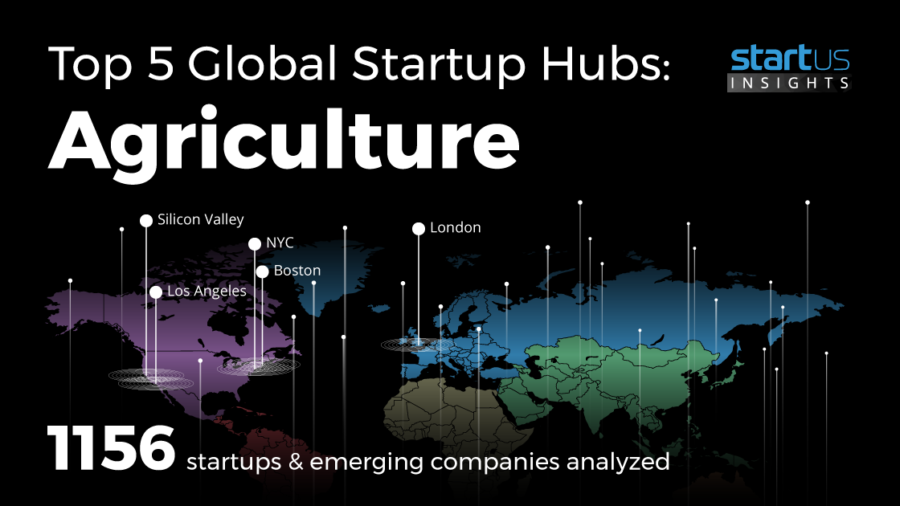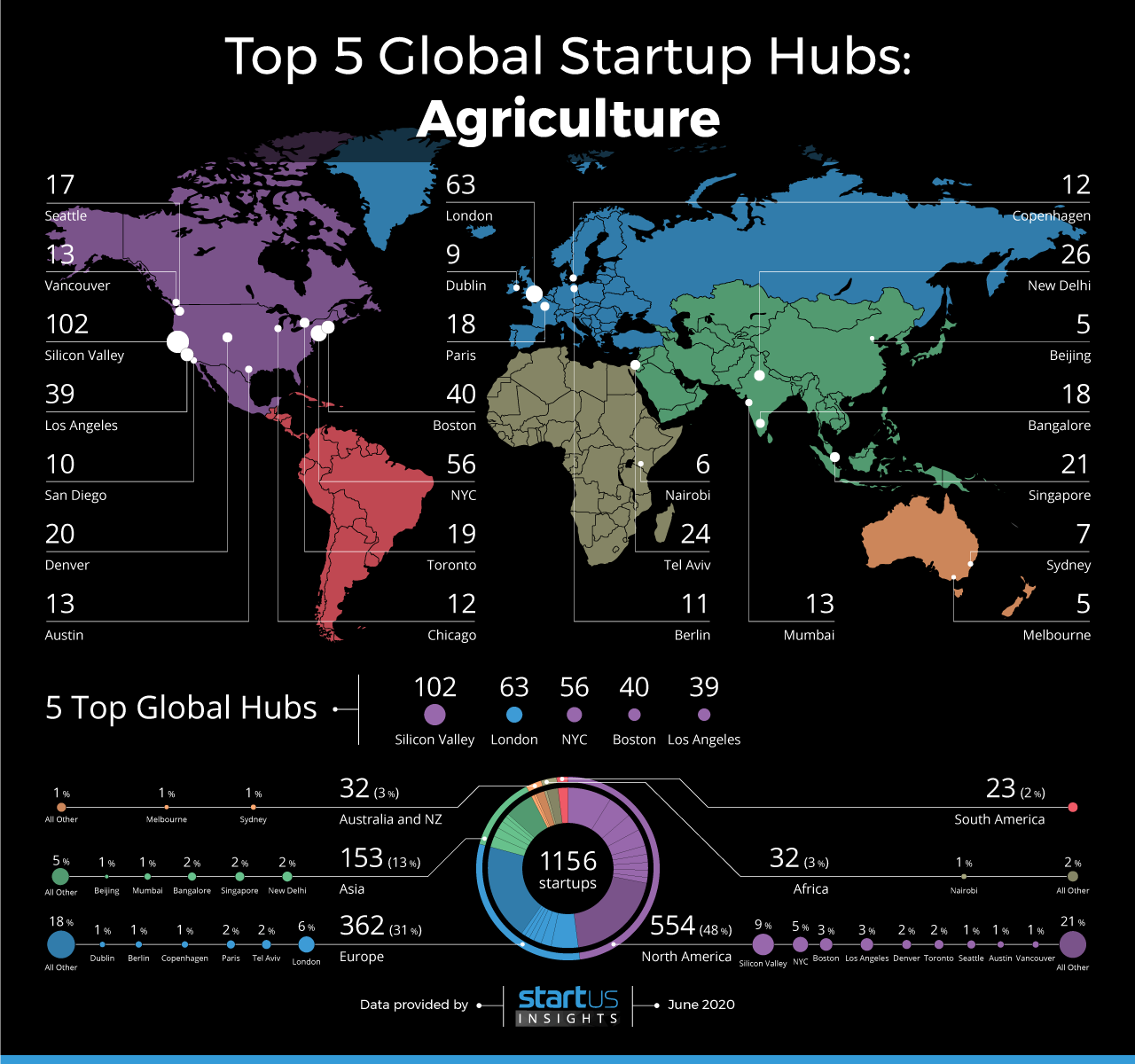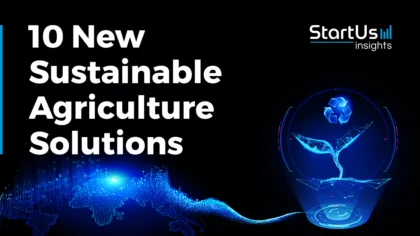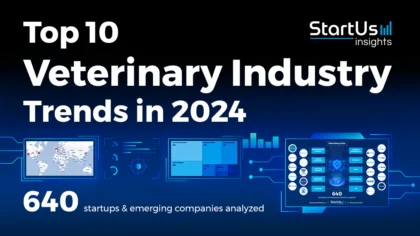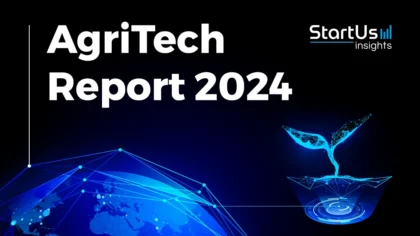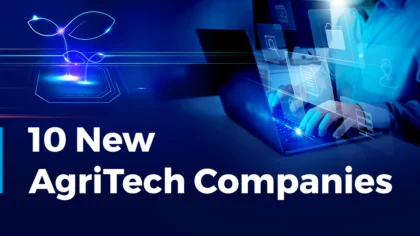Food security is a global concern as the world population continues to grow, while the land available for farming shrinks rapidly. As farmers look to improve crop yield and reduce wastages at all stages from farm to table, startups with tech-based solutions are stepping up to the challenge. They use emerging technologies like machine learning (ML), the internet of things (IoT), big data, sensors, and satellite imaging to make agriculture more precise and sustainable. Advances in life sciences, such as genetic engineering and gene editing, also find applications in agriculture. Tolerance against pesticides and drought, climate-smart farming, soil mapping, and spatial data analysis are a few prominent examples of novel use cases in the agriculture industry.
Top 5 Global Startup Hubs: Agriculture
Using our StartUs Insights Platform, we analyzed the geographic distribution of global activity in the agriculture industry. We identified 37 regional hubs* that observe high activity in developing technology-driven solutions across the industry like biofertilizers, livestock monitoring, hydroponics, and hyperspectral imaging to name a few.
Within the hubs, we analyzed a sample of 25 startups* employing technology-driven solutions to innovate in the industry. Silicon Valley, London, New York City, Boston, and Los Angeles are home to 300 startups and account for 26% of global activity in agriculture. Let us have a look at some of the innovative solutions from these 5 top hubs.
Based on our analysis of a sample of 1.156 emerging solutions, North America alone accounts for nearly half of global activity in the agriculture sector. Several large agriculture hubs in the US are cities that are tech hubs in agricultural producing states.
European agriculture hubs in London, Tel Aviv, Paris, Copenhagen, Berlin, etc. account for 31% of global activity. These hubs support agricultural practices in their respective countries, which have far lesser farmland available. Emerging Asian hubs in New Delhi and Singapore lead the region’s activity in the sector.
1. Silicon Valley: 102 Startups
Agriculture is the latest among a long list of sectors that Silicon Valley is set to disrupt. Industry-specific incubators and venture capital firms are accelerating the growth of agritech companies. As one of the earliest industries meets the latest innovations from the region, solutions involve the use of deep learning, satellites, blockchain, wearables, etc. California’s farms, which span tens of millions of acres, offer plenty of opportunities for agritech startups to test their solutions.
ZTRACTOR is a Silicon Valley startup that manufactures autonomous electric tractors (AETs). The Bearcub 24 model uses sensors, cameras, and other measuring equipment to collect real-time agricultural data as it operates in the field. Its IoT framework and machine learning algorithms turn this data into useful insights to improve plant conditions and increase yield. The tractor comes with an adjustable chassis and has flexible row width and bed size to suit various crops.
2. London: 63 Startups
The United Kingdom government’s strategy for agricultural technologies plans to improve the translation of research into practice through targeted sector support. As part of the strategy, Crop Health and Protection (CHAP) was founded in 2016 to improve crop yield and tackle challenges such as climate change and depleting natural resources. The presence of world-class plant and animal research institutions, innovative farming supply chains and financial strength make London an attractive hub for agritech businesses.
London-based startup Smartbell offers animal health management solutions for the agriculture sector. It uses wearable devices that mount to cattle’s ears or collars and monitor activity, temperature, heart rate, and pneumonia symptoms. The solution sends instant alerts if something is wrong with any animal on the farm and the event history is accessible anytime in the future. Smartbell’s solutions make cattle health monitoring consistent, and as a result, enhance productivity.
3. New York City: 56 Startups
Agriculture is a major industry in the state of New York, with about 20% of its land covered with farms. Government-backed programs such as The New York State Grown & Certified and Taste NY encourage local farmers and take them to local and international markets. Even though agritech startups in the city often address the challenges of the local agriculture industry, the underlying solutions are globally applicable.
Foodshed.io is a New York City-based startup that develops a marketing and distribution solution for local farmers. It connects small-scale agricultural producers with chefs, supermarkets, and institutional buyers within a 250 mi (400 km) radius. The company uses blockchain, route optimization, and real-time updates to create an efficient, reliable, and transparent market for buyers. The solution helps the local agricultural business easily reach a range of businesses.
4. Boston: 40 Startups
Boston is home to world-class universities, including Harvard and the Massachusetts Institute of Technology, that are fertile grounds for cross-disciplinary innovations in sectors like agriculture. The abundance of life sciences talent translates to solutions that incorporate cutting-edge genomics and genetic engineering technologies. The interest in urban farming is also booming in the city, with a range of new solutions to grow and profit from farming in urban spaces.
Boston-based Kula Bio offers sustainable biological solutions for agriculture. The startup develops engineered microbes as a biofertilizer alternative to both synthetic and organic fertilizers. It extends their lifetime in their field and boosts their natural fertilizing abilities. The solution is a low cost, precise, and reliable biofertilizer that has a low nutrient runoff, no pathogen risk, and does not pollute the environment.
5. Los Angeles: 39 Startups
While Los Angeles has an illustrious farming history, agriculture has not been featured much in the city’s economy in the last several decades. However, a push for urban agriculture is heralding a comeback for the agriculture industry in Los Angeles. Backed by California’s Urban Agriculture Incentive Zone (UIAZ) program, the city incentivizes landowners to use vacant properties for agricultural purposes in exchange for potential property tax reduction. Agritech startups in the city also work on indoor farming solutions.
Pulse Grow is a Los Angeles-based startup that develops connected sensors and a grow room management solution for cultivators. The solution uses sensors to measure temperature, humidity, vapor-pressure deficit, light, and dew point. Pulse One is easy to set up with WiFi and enables cultivators to monitor grow room conditions from anywhere. By providing the ability to analyze the impact of interventions on the grow room environment, the smart grow room monitor increases yields and reduces waste.
What’s Next?
Startups continue to explore novel use cases for Artificial Intelligence, Machine Learning, and the Internet of Things in agriculture. As the agricultural sectors in developing countries adopt these solutions, they’d need to adapt to local issues too. With increasing concerns about the quality of off-the-shelf food, urban agriculture can be expected to grow in major cities around the world.
*We define a hub as the regional geographic center of activity for this topic. It covers the center point with a radius of 100km. We define startups as those founded after 2015.
